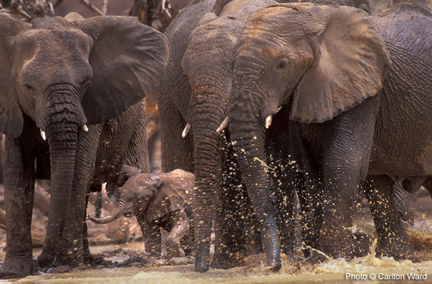
Working for Wilderness
The United States has The Wilderness Act (1964), 50 years old this year (Happy birthday!), which enables us to protect specific Wilderness Areas legally. When the word “wilderness” is used internationally, however, it is more often a generic term, referring to a “wildland” area rather than a designated Wilderness Area. Some 10 to 11 other countries have national legislation like ours, and that number grows slowly.
The Wilderness Act continues to be a social, scientific and poetic milestone in law and policy, demonstrating that contemporary civilization is beginning to consider “What does Nature need?”
Great stuff, pioneering, but there’s a catch: The 1964 Act virtually left out the people, as demonstrated in the famous phrase “…man is a visitor who does not remain,” so as it inspired similar laws in Australia, South Africa, etc., the erroneous impression grew (especially in the developing world) that the wilderness concept is elitist, Anglo, anti-people. This was despite the fact that subsequently — most notably in the Alaska National Interest Lands Conservation Act (ANILCA, 1980) that added 54 million acres of designated wilderness to the U.S. National Wilderness Preservation System — considerable attention was given to the rights and practices of native and indigenous people. The “anti-people” argument is antiquated but is still a convenient club used against wilderness by development-oriented interests in business and politics.
That needs to change. So for 40 years the work of The WILD Foundation has been to unite people and wilderness in a manner that serves all life on Earth. We work in many ways: on land and sea and with governments, institutions, traditional communities, corporations and in the arts and humanities. We do it in many ways: Mali (West Africa), south of Timbuktu, with local communities to protect a unique herd of desert-adapted elephants; with political leaders on cooperative policy for wild nature across cultures and national boundaries; through our World Wilderness Congress, a collaborative and practically oriented global process that started in 1977 and is now the world’s longest-running, public, international conservation program; and more.
All our work responds to our mission called Nature Needs Half, a vision and common-sense practice based on the best science and traditional wisdom, which calls for people to protect and interconnect half of the planet’s lands and seas for the well-being and survival of all life on earth. It’s all about creating the right relationship. Nature needs half — at least — for people and the planet to prosper!
—Vance G. Martin
Vance G. Martin is president of The WILD Foundation and a speaker at the 2014 Moving Mountains Symposium on May 23.


